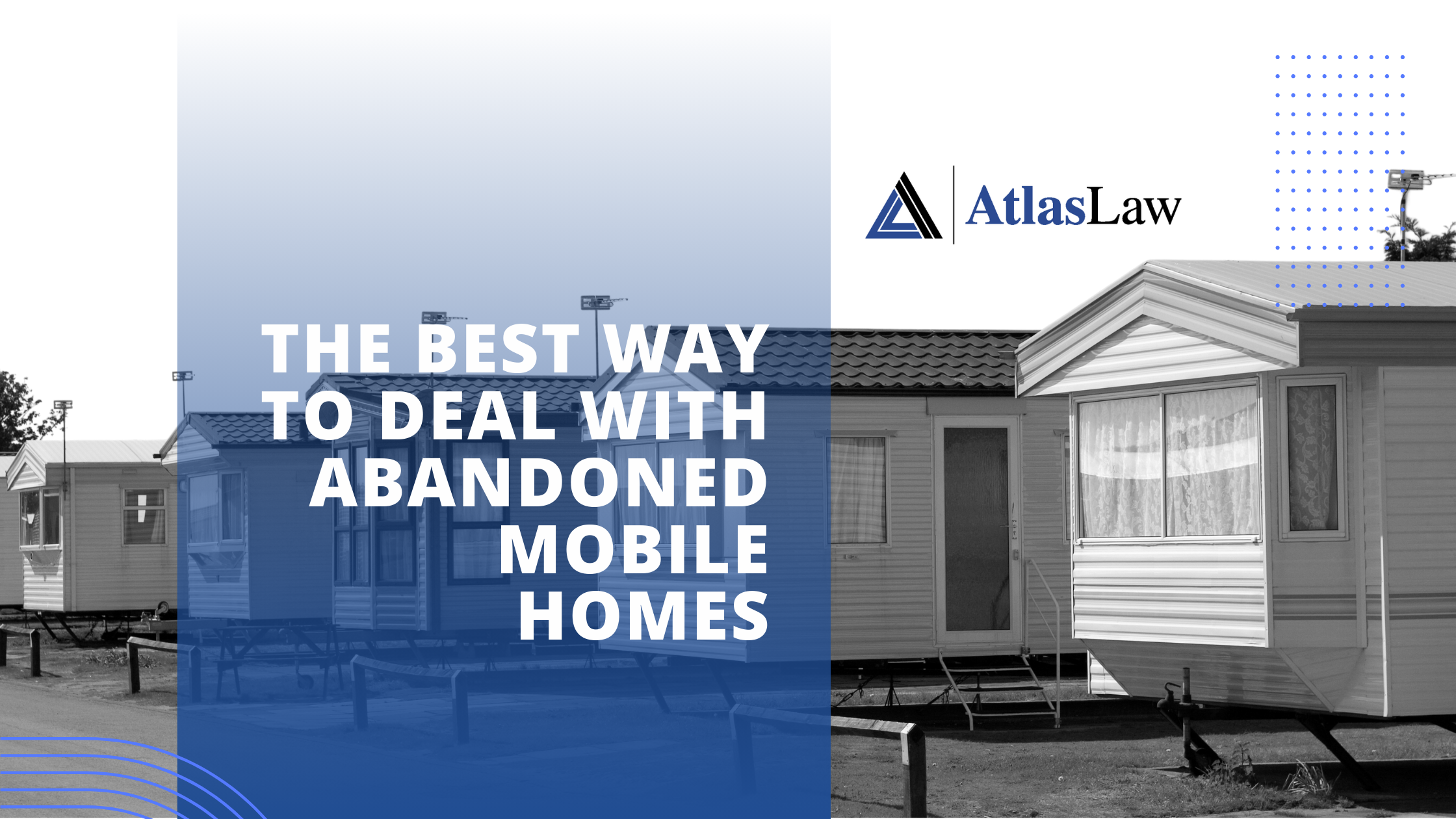
In the mobile home park industry, one of the most challenging aspects for owners is handling abandoned mobile homes. The presence of these unoccupied and neglected units not only mars the visual appeal and orderly environment of the park but also ushers in a multitude of legal obligations for the owners.
Chapter 715 of the Florida Statutes outlines specific procedures for managing such properties. For park owners, meticulous compliance with these statutory guidelines is not just a matter of legal formality; it is an essential practice to safeguard themselves from potential legal entanglements and to maintain the integrity and operational smoothness of their mobile home parks.
Understanding the Legal Framework for Abandoned Mobile Homes
Florida law defines an abandoned mobile home as one left unoccupied by a tenant who has no intention of returning, leaving personal property behind. In these cases, park owners must follow legal steps to manage these homes appropriately. These steps are designed to protect the rights of tenants and park owners and to ensure the orderly management of the park.
Notification Process for Abandoned Mobile Homes
The initial step in this process involves notifying the tenant or any potential owner of the abandoned property. This notification must be in writing and sent via first-class mail to the tenant’s last known address. It should inform the recipient where the property is being stored, the costs for storage, how the property can be claimed, and a deadline for claiming the property (at least 10-15 days). The notice must also detail how the property will be disposed of if it remains unclaimed.
Auctioning High-Value Properties
If unclaimed and valued over $500.00, park owners can auction these properties. This auction requires public notice in a local newspaper, including the former tenant’s name, a description of the property, and the time and place of the sale. Park owners can bid in these auctions. The proceeds, after deducting costs for storage, advertising, and sale, can be claimed by the tenant or property owner within a specified period before being deposited into the county registry.
Dealing with Low-Value Properties
For properties worth less than $500.00, park owners have more discretion. They can retain or dispose of these properties as they see fit, provided they have made reasonable efforts to return them to the tenant. Please note that only in very rare circumstances will a Court agree that a manufactured home is worth less than $500.00. Valuation at less than $500.00 only occurs where there has been material damage to the unit, such as a fire or significant hurricane damage.
Exceptions to Standard Procedures
There are two exceptions under Florida law. Firstly, if the lease agreement includes a specific clause as per Florida Statute §83.67, the landlord is not required to provide notice or storage for the tenant’s personal property after surrender, abandonment, or recovery of possession. Secondly, under Florida Statute §83.62, after the sheriff executes a writ of possession, the landlord can move the tenant’s property to the property line. However, this may involve costs and challenges, particularly in multifamily or restricted communities. Moreover, these statutes only govern Chapter 83 tenancies where the tenant does NOT own the mobile home. In most circumstances facing our mobile home community owners, the tenant owns the mobile home and Chapter 723 applies – thereby negating the provisions of Chapter 83 cited above.
Seeking Professional Guidance
Managing abandoned mobile homes in Florida requires a careful balance between legal obligations and practical considerations. Park owners must diligently adhere to statutory procedures to handle these properties lawfully and efficiently while minimizing liability risks. Understanding and following these laws are crucial for the successful management of a mobile home park.
For mobile home park owners grappling with the complexities of managing abandoned properties, professional legal advice is crucial. Atlas Law offers experienced counsel to ensure compliance with Florida law and to protect the interests of your mobile home park. Schedule a consultation with us to navigate these legal challenges effectively.